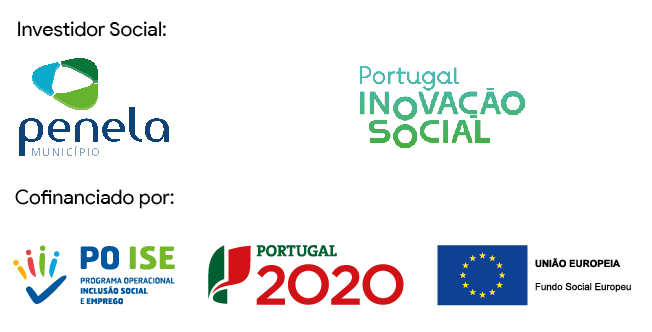NEETMAKER
Capacitação e Estímulo à Empregabilidade e Inclusão Social
Desafio
Desenvolver competências num público-alvo definido socialmente como "nem-nem", jovens (dos 20 aos 34 anos) que estão fora do mercado de trabalho e não frequentam instituições educacionais, na área de abrangência do projeto. A ausência de competências adequadas, associadas à falta de espírito empreendedor deste público, coloca-os numa situação de exclusão social e marginalidade, sendo muitas vezes vistos pela sociedade como pertencentes a uma geração que não tem uma cultura e hábitos de trabalho, vivendo assim na dependência de amigos e familiares. Desta forma, existe um duplo problema associado aos NEET, por um lado, não contribuem para o desenvolvimento e, por outro, o estigma social, que pode resvalar para comportamentos de risco, empobrecimento e situações de exclusão social. O problema vigente pode ter na capacitação do público uma oportunidade quer de trabalho para os próprios destinatários, quer para os territórios que veem a massa crítica e a capacidade de trabalho reforçada em áreas da nova economia, dando sequência à estratégia e ao Plano Estratégico do Município de Penela.
Solução / Objetivo Principal
Promover a empregabilidade de jovens NEET (Not Currently engaged in Employment, Education or Training), através de um programa de capacitação flexível e prático, que estimula a criatividade e o espírito empreendedor deste grupo social. O programa procura adaptar a oferta de jovens desempregados às necessidades reais do mercado atual.
Objetivos, Atividades e Resultados esperados / atingidos
O projeto, operacionalizado pela equipa HIESE, está estruturado numa vertente hands-on com workshops, bootcamps, residências criativas e exposições de resultados (maker faire). O participante será capacitado e convidado a criar o seu próprio projeto que pode ser um produto ou serviço digital, dentro de um FabLab devidamente apetrechado (FabLab Penela). As áreas abordadas neste projeto são a fabricação digital, a eletrónica, a programação IOT, a programação web, o design e o marketing digital. O acesso a estas ferramentas/recursos de fabricação digital permite o desenvolvimento de competências valorizadas no mercado de trabalho e a geração de oportunidades de criação do próprio negócio.
O projeto pretende criar uma solução one-stop-shop para os jovens NEET participantes, promovendo a sua inserção profissional e inclusão social, pelo que a expectativa é que tenha um forte impacto regional. Espera-se um resultado ambicioso na retenção de jovens na região do interior e em territórios de baixa densidade, evitando assim a sua migração para centros urbanos, através da disponibilização destes jovens mais capacitados e motivados ao tecido empresarial. Para além destes impactos, existe ainda a redução dos riscos sociais, porque se diminui os comportamentos de risco associados ao desemprego e à falta de perspetivas de futuro, colaborando indiretamente para a diminuição desses comportamentos.
Atividades
- Atividade 1: Gestão de Projeto
- Atividade 2: Sensibilização e mobilização dos NEET; Capacitação dos mentores
- Atividade 3: Programa de capacitação para a empregabilidade 1
- Atividade 4: Programa de capacitação para a empregabilidade 2
- Atividade 5: Residências Criativas | Economia Digital
- Atividade 6: Concurso de ideias de protótipos de produtos e serviços
- Atividade 7: NEET MAKER FAIR
- Atividade 8: Acompanhamento externo, monitorização e avaliação dos impactos
- Nº de pessoas participantes - 100
- Nº de pessoas que integram o mercado de trabalho ou criam o seu próprio emprego - 25

Referência do projeto
POISE-03-4639-FSE-000822Financiamento

Região de Intervenção
CentroInvestimento Total
330.685,62Investimento do IPN
330.685,62Elegível Total
231.479,93Elegível do IPN
231.479,93Apoio Financeiro da UE - Total
231.479,93 (FSE)Apoio Financeiro da UE – IPN
231.479,93 (FSE)Duração
31 MesesData de Início
2020-06-01Data de Fim
2022-12-31Data de Aprovação
2020-05-01Consórcio
IPN IncubadoraCâmara Municipal de Penela (Investidor Social)
Parceiros
Município de PenelaWebsite
http://www.neetmaker.ptPalavras-chave
Nem-Nem (Não trabalham nem estudam);Makers;
Capacitação;
Empregabilidade;
Inclusão Social






